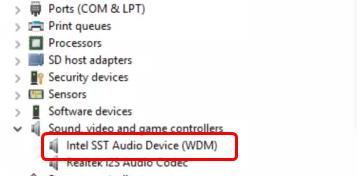
With ASIO, only one driver can be used at a time. The host can adjust the latency - you don't have to go into the driver control panel.ĭifferent WDM drivers from different makes of interfaces can be used to get more channels. WDM is Windows native and even an on-board soundchip should support KS well enough. But, ASIO is NOT a native Windows program interface, it's an extra standard from Steinberg. The important thing with WDM/KS is the "KS" bit - Kernal Streaming - which allows a program like Sonar to get fast access to the interface - which is what ASIO also does.

Using ASIO4ALL is therefore just the same as using WDM/KS. "ASIO4ALL", a free program that adds ASIO to a WDM only driver, uses KS to get in.

Many interfaces have WDM drivers with ASIO, the WDM driver spec allows other program interface standards to be added on without limitations. E-mu, for instance, don't supply a WDM driver, it's an ASIO driver with some limited WDM support added on top, so don't be surprised if ASIO is the only way to get good performance with E-mu interfaces. In principle, WDM/KS is just as good as ASIO, but it has to be a WDM driver to work properly.


 0 kommentar(er)
0 kommentar(er)
